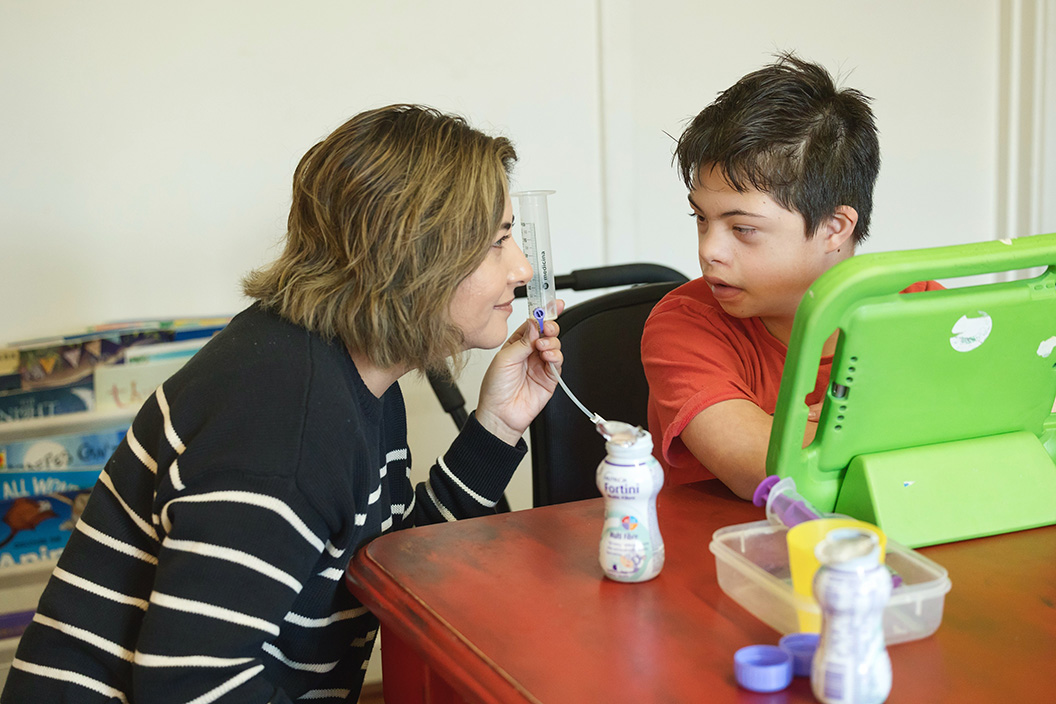Children with intellectual disability need appropriate supports and services to achieve their best physical and mental health, engage productively in the community, and to have agency and control in their lives.
The cause of intellectual disability is often unknown. Some causes are genetic, problems during pregnancy or at birth, infections and other causes relate to environmental factors.
Some genetic causes are rare, and others occur more commonly.
The aims of our intellectual disability research are:
- To understand child and family experiences of intellectual disability and what is important to the children and their families.
- To determine the prevalence of intellectual disability and the risk factors for intellectual disability.
- To identify the effectiveness of interventions that reduce difficulties and improve quality of life for people affected by intellectual disability.
If you are concerned about your child’s development, you should seek advice from a professional. Getting assessed will provide access to early intervention, education and support.
Our research impact
The Intellectual Disability Exploring Answers (IDEA) database is one of the only population-based resources in the world dedicated to intellectual disability, with additional specific research projects on Down syndrome, Rett syndrome and the CDKL5 disorder.
Researchers are examining critical time periods and their relationship with intellectual disability, including pre-term birth and the transition from school to adulthood for young adults with an intellectual disability. Research on the transition period looks at their work, where they live, who provides cares, how health and therapy needs are managed and how the young adults spend their days.
One study has found that young people with Down syndrome experience fewer behaviour problems compared with those with intellectual disability of other causes. Nutrition and physical activity in children with Down syndrome is another area being explored.
Research has shown that children with an intellectual disability or autism are up to 10 times more likely to be admitted to hospital than children without intellectual disability or autism.
Another study has found that mothers of a child with autism or intellectual disability (but not Down syndrome) were more likely to have mental health problems after the child’s birth. This may relate to the amount of care needed by their child and suggests that support services could also have an important role in supporting the health of the mothers.




